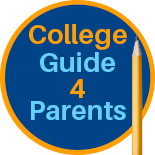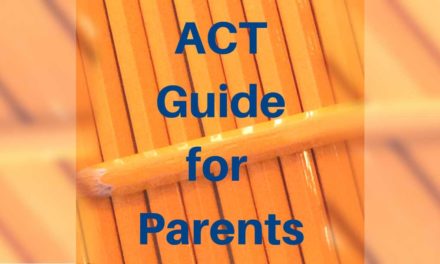A newsletter for the parents of high school students that addresses college preparation news of interest to them for that month.
1. The PSAT Test is on October 10th
- Millions of high school students will take the PSAT on October, 10th
- Taking the PSAT is a good practice for the SAT and for juniors, it is a chance to qualify for the National Merit Scholarship.
To learn more about the PSAT and how a student becomes a National Merit Scholar, consult these resources:
About the PSAT Test by the Princeton Review
A quick introduction to the PSAT
What is the PSAT Test? Everything you need to know by PrepScholar
This is a more detailed explanation of the PSAT including why take this test, what subjects are tested, and how it is scored.
How you can win a National Merit Scholarship by U.S.News
The scholarship itself is not very big, but being a National Merit Scholar can also help a student qualify for other larger merit scholarships. This post outlines the steps to become a National Merit Scholar.
2. College App – What to do this month?
For most colleges, Early Action and Early Decision deadlines are November 1 or November 15. For Regular Decision, deadlines are between January 1 and February 1.
Entering data in an online college application takes time and planning and should be started as early as possible. The good news is that it does not need to be done in one sitting. The student can work on a section, save the work done, and come back later.
Some sections will take more time than others. For instance, applications ask for a list of leadership roles, awards earned, and courses taken while in high school. Each should include everything done since 9th grade. The more details are provided, the better.
The main essay can be uploaded from your computer. Besides a shared main text, like the Common Application essay, individual schools often require one or more shorter essays.
Reference letters are entered online. Students need to choose who they would like to ask for a reference letter and make a formal request on paper or by email. These persons will need time to gather the information and write the recommendation, and since all students are asking for letters at the same time, it is best for the students to contact their referees at least one month before the letter must be submitted.
For most online applications, students are asked to enter the names of their referees and their email addresses. These persons then receive an email with a link to where to upload the letter.
More in-depth information about the college application process:
Important college admission deadlines you can’t miss by PrepScholar
An in-depth discussion of what are Regular Decision, Early Action, Early Decision, and Rolling Admissions.
2018-19 Common Application Essay Prompts by commonapp.org
The list of essay prompts shared by all colleges accepting the 2018-19 Common Application.
3. The ACT
The next ACT dates are October 27 and December 8.
For Seniors
For most seniors applying for Early Decision and Early Action, the last chance to take the ACT is in October. Some schools do accept December scores as well, so students should contact their schools of interest for more details. Those applying for Regular Decision can send scores for tests taken as late as December 8.
For Sophomores and Juniors
Students still working on improving their ACT score can significantly benefit from knowing which questions they missed and why. On some testing dates and for an additional fee, the ACT company does provide that information. Students taking the December test can pay an additional $20.00 to receive along with their score, the questions booklet, the answers they provided and the correct answers. When registering, select the “Test Information Release” option.
More about when to take the ACT and how to ace the test:
When you should take the ACT in 2018-2019 by PrepScholar
PrepScholar experts’ recommendations about the best times to take the ACT to maximize the results while minimizing the number of times the test is taken.
How to ace the ACT: 6 top tips for success by PrepScholar
Six strategies to do well on the ACT
18 awesome ACT hacks to help you ace the test by PrepScholar
Tips specific to each section of the test: English, Math, Reading and Science
How to get a perfect ACT score, by a 36 Full scorer by PrepScholar
How a student can maximize his/her chances to get a 36
4. Feature of the month: Volunteering before senior year
Colleges value volunteering experience because it shows that the student is willing to go outside of his/her comfort zone. It also indicates a desire to give back to society.
Why start volunteering in 9th grade
Some students may think that they can wait until junior year to start volunteering. In reality, beginning in 9th grade can help build stronger college or merit-based scholarship applications. These typically ask for a description of each volunteering opportunity the child was involved in, the year it took place, and the number of hours that were spent volunteering for that organization.
Volunteering also enhances a student’s application in a different way. College essays are meant to help the selection committee get a full picture of the student as well as his/her goals and aspirations. Being involved in activities outside of school hours provides the child with a wealth of experiences and anecdotes to draw from while writing his/her essays or during interviews.
Where to volunteer
Finding places which accept teenage volunteers may be a challenge. One easy way is to get involved in a school club that organizes community work. If your child is looking for other options, the Boy Scouts and the Girl Scouts provide their members with many opportunities to give their time. Your local church or charity may need volunteers for big clean-ups or special events. Plan to visit your local animal shelter and library to ask if they need any help.
Our local animal shelter appreciates having volunteers come play with the dogs and the cats to help socialize them. Who would not want to spend two hours petting and playing with a cat! Our local VA hospital hosts a summer volunteering program for teens. It relies heavily on students as young as fourteen to escort outpatients around the buildings and to bring coffee, newspapers, or popcorn to those staying at the hospital.
How you can help
Parents’ involvement can play a significant role in making sure that students have great volunteering experiences. You can help your children find and select activities they will enjoy and of course, drive them around to all of their activities. You will also most likely be the record keeper. Maintaining detailed information about each volunteering opportunity will help not only for college applications, but also every time your child will apply for a competitive camp or club.
Online resources about volunteering:
How to start volunteering as a teen
This article highlights the benefits and challenges of volunteering for teenagers.
5 ways teens can make their college applications stand out
How tailoring a student’s volunteering opportunities to his/her interests can help create a strong college application.





